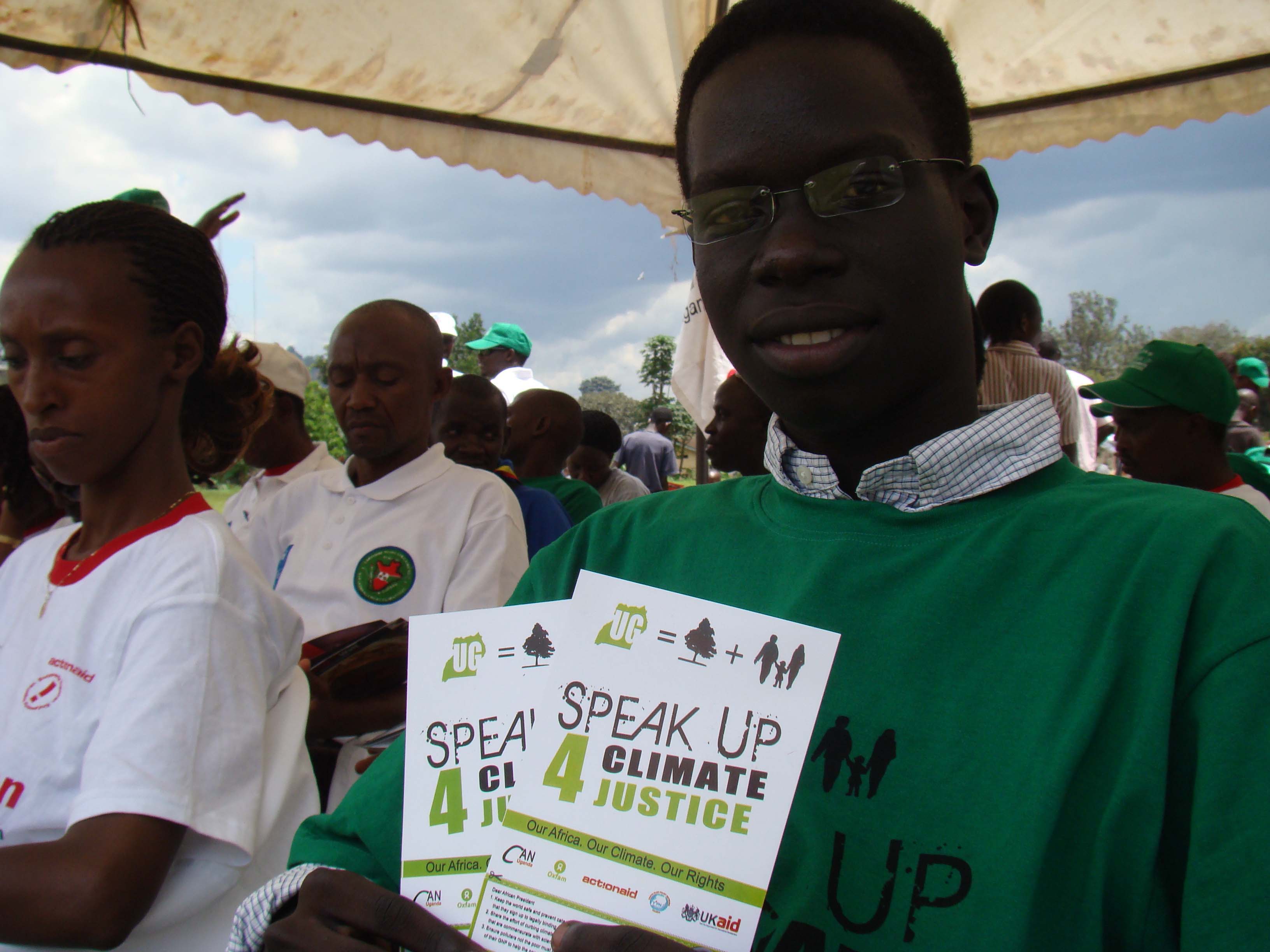The aim of the Trans-African Caravan of Hope, organized by the Pan African Climate Change Justice Alliance, was to gather information about and raise awareness of the impact of climate change on those least responsible for causing it.
Signatures were gathered en route for a petition, the African People’s Protocol, which urges developed nations to abide by their Kyoto treaty commitments to reduce emissions and finance adaptation programmes.
IRIN spoke to some of those travelling with the convoy:
Emile Hakizimana 25, Burundian student and blogger: “Look, people in Africa are bound to face hunger because food production is going down as a result of floods and drought.
“We require sound pro-people governance that will put to use outcomes of the COP 17 [Conference of the Parties] meeting to improve lives of the rural communities facing the effects of climate change.”
Boniface Okot, 25, Ugandan student: “Food production will remain unpredictable if the weather continues to be unpredictable. The only way out is to find an agreeable means by which we can preserve the environment for the future.
“We require more knowledge and technology transfers that will help the developing economies have sufficient food and at the same time develop.”
Chandia Benadette Kodili, 25, Ugandan blogger with ActionAid International: “This [journey] gave me a great opportunity to experience the climate situation in other countries and how that affects the food security of people and eventually their lives.
“I have come to appreciate Uganda as the pearl of Africa because most of the countries we went through are so dry and hot; I wonder how people struggle to live in these places with devastating effects of climate change.
“I come from Moyo District, which has been affected greatly by floods displacing people, leading to diseases and food shortages... In the countries I have passed through... I have seen massive effects.
“I live in the city and depend on these small-scale women farmers struggling to produce food for their survival and at the same time feeding people in the city yet their crop yields are falling due to bad weather.
|
Photo: Charles Akena/IRIN |
| Collins Odhiambo from Kenya was among the activists on the Trans-African Caravan of Hope |
“Developed nations have to do something; we are already seeing Canada pulling out of the Kyoto Protocol, and the US, one of the biggest polluters, is not even part of this agreement. I ride in hope that they will get to their senses because right now they are politicking.”
Collins Odhiambo 24, Kenyan resident of Nairobi’s Kibera slum: “The caravan was a tough journey that required commitment; it provided me with the opportunity to meet and talk to people, some of them from communities affected by the drought crisis in eastern and southern Africa.
“Hearing their sad tales of how climate change has shattered their lives was heart-breaking. One thing that came out clearly in all the countries we visited is that climate change is real and it is here with us. It is the reality of our lives and the sooner action is taken the better; otherwise, our survival is at stake.
“Looking at the attention and reception that the caravan was receiving in different countries it passed through, it was humbling to see people from all walks of life, senior government officials, women, youths, children and men, come out in large numbers to speak out in one voice: immediate action is needed to save the world.
“I don’t see any breakthrough in the COP 17 meeting in Durban. In fact I am beginning to lose faith in these meetings because they are a waste of time and resources.
“How many COPs do we need before we can agree?”
ca/am/mw
This article was produced by IRIN News while it was part of the United Nations Office for the Coordination of Humanitarian Affairs. Please send queries on copyright or liability to the UN. For more information: https://shop.un.org/rights-permissions





